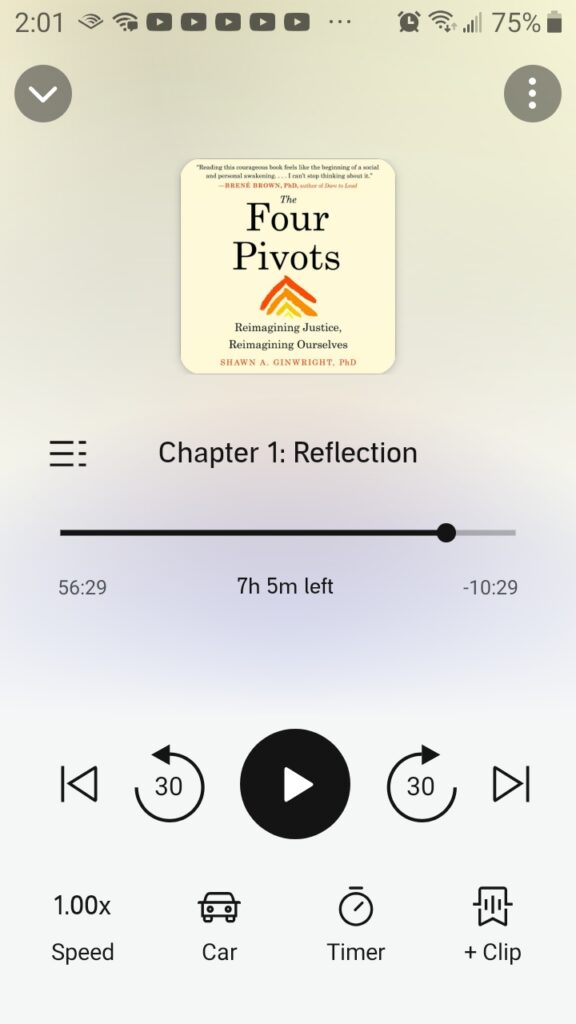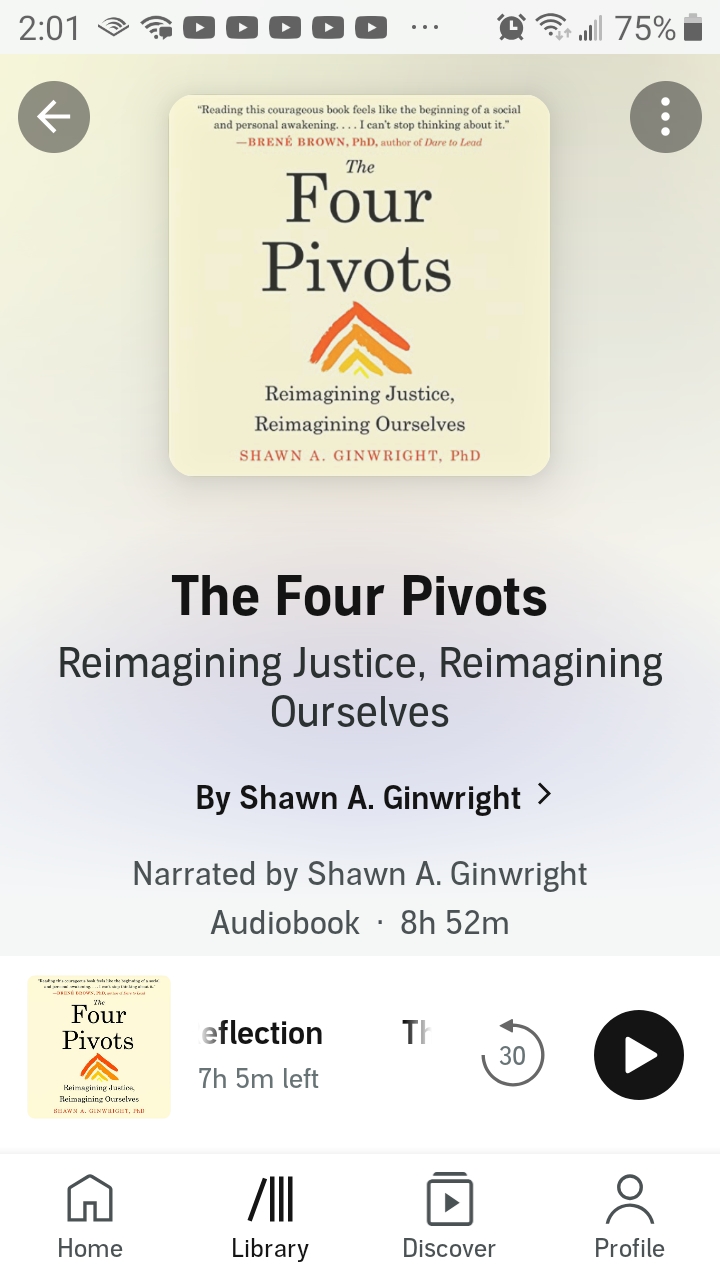Listen to The Four Pivots by Shawn A. Ginwright on Audible.
https://www.audible.com/pd/B09MZNDGJW?source_code=ASSORAP0511160007
I am often a skipper of introductions until the end of a book.
If I picked up a book it was because I wanted to read it. I’d always felt introductions were a vainglorious, wasted sway attempt on an already captive audience , one brimming with pomposity and solely operating on the greasing of palms and the legitimization of unnecessary wind-baggery from wannabe gatekeepers jockeying to build paper trails to justify whatever narrowness they aimed to be seen as specialists of down the road.
It was very much “If I’d wanted Your opinions I would’ve gotten a book written by you-” writerhead grousing, rooted in love for the author who’d done the work of actually having “written,” and seeing as blasphemy anyone else trying to interject their critque into the private, demisexual bookist affair afoot for me in communion with the actual mind that made the tome.

(to clarify for those who need… clarification 😬)
Harsh? Perhaps.
But when books are ecstasy to you and your system knows the glories of pure Nineties Netherlandian x’d out nights, the attempt to cut that high with anything other than source may as well be seen as rat poison. Rat poison in X iin NYC made the noses of motherfuckers bleed underground.
《…Did she just equate blowhard book introductions with rat poison?🤦🏾♀️Yes… but she’s going somewhere with it👩🏾🏫. So shhh~》
Who wants a book to do that?
I mean, inauthentically.
Because the idea of a book making your brain bleed out of your head orifices n
ot due to rat poison but just deftly demented Darkly Fantastical skill…is kinda hot.
There was even a period of time where I outright rejected books that made that kind of braying noise over celebratedly penned forewards and intros on subjects I loved, in childish protest.
That didn’t last long, because… well~Nerd.
I learned to skip them altogether, only occasionally pinging back at the end of the affair to see whether or not the gossip of the top of it would’ve killed my connection to the subject or source. Often I would end up fussing, too. Very “See!? That’s exactly wtf I was talking about!”
What broke me out of that reverse blowhardism, fighting fire with firefights?
Stephen King’s audiobook where He did his own introduction.

photo by Shane Leonard.
A whole world opened, an exegesis ahead of time from the mind who brought you xyz became seductive.
And I learned to amble alongside the author in real time, the bon-mots beforehand smacking me in the forehead as the writers were walked with. I started taking my time with them, as them. It opened up a whole new realm for me, even in my own work.
Ginwright’s the Four Pivots is the best mise en place preamble I’ve ever indulged in, ‘nonfiction societal implications of healing trauma research wise.
It was the perfect bridge into his actual work from his talks on panels at collective grief and trauma summits and left me understanding what made those talks so compelling in the first place.
I dove into the book awash with an understanding that the clarion call that was the impetus Of grievechronic was heard and interpreted in rich, wild ways.
Here is an addressing of structure run into on this path and how to successfully rock climb the sheer cliffs of it, a mountaineering handbook of the dark, deep high places that are par for the course in tackling true healing work.
His intro makes the real work of deep diving the first pivot ring that much louder.
He’s knocked the audiobooks that were being consumed concurrently back behind him now.
And that’s kinda cool.
Good thing I took a new path & didn’t just skip over his intro. He is who I do my daily walks listening to nowadays.
We learn as we grow.
FOR MORE ON HIS WORK go here.

